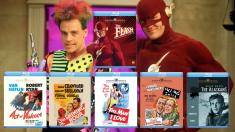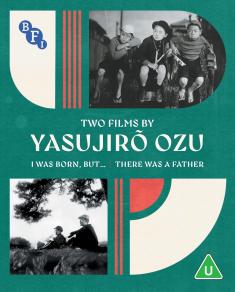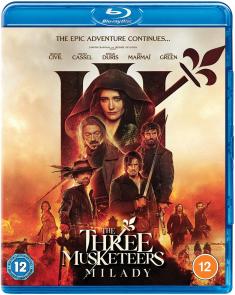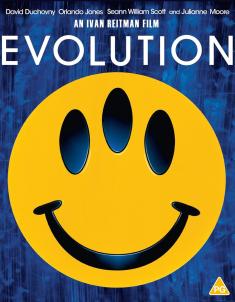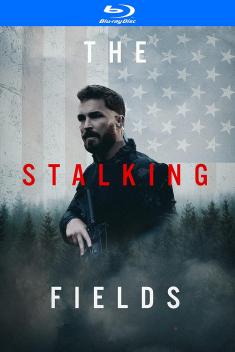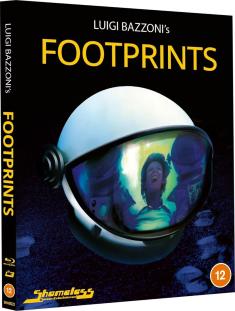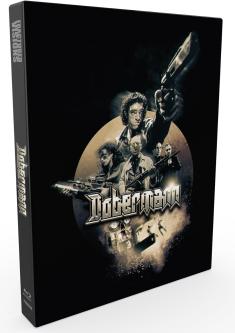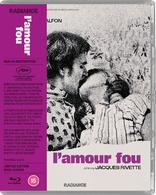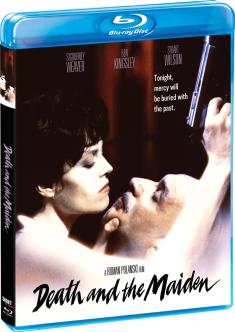Othello (1952 & 1955) - Criterion Collection
Overview -
Gloriously cinematic despite being made on a tiny budget, Orson Welles’s Othello is a testament to the filmmaker’s stubborn willingness to pursue his vision to the ends of the earth. Unmatched in his passionate identification with Shakespeare’s imagination, Welles brings his inventive visual approach to this enduring tragedy of jealousy, bigotry, and rage, and also gives a towering performance as the Moor of Venice, alongside Suzanne Cloutier as his innocent wife, Desdemona, and Micheál MacLiammóir as the scheming Iago. Shot over the course of three years in Morocco, Venice, Tuscany, and Rome and plagued by many logistical problems, this fiercely independent film joins Macbeth and Chimes at Midnight in making the case for Welles as the cinema’s most audacious interpreter of the Bard.
Storyline: Our Reviewer's Take

Almost every great artist breaks the rules. Bucking the establishment and forging fearlessly into uncharted waters is often the only way any art form can expand and develop. Orson Welles instinctively knew that, and with a bravado that often belied his youth, he gleefully disrupted the status quo, first in radio, then in Hollywood, where he regularly ruffled feathers and produced what many still believe to be the greatest movie of all time, Citizen Kane. The influence of that immortal film continues to reach far and wide, but arguably no Welles production breaks more rules or dazzles the senses more completely than his mesmerizing adaptation of William Shakespeare's Othello. Packed with more breathtaking images and inventive compositions per capita than almost any other motion picture in history, Othello is a visual feast from start to finish, and a tribute to one man's dogged perseverance, innovative vision, and boundless creativity. The term "monumental achievement" is often cavalierly bandied about, but in the case of Othello, it fits like a glove.
Is the film perfect? Far from it. In fact, its myriad imperfections make us appreciate the movie's audacious artistry all the more. Othello is bold and beautiful and rough and sloppy all at the same time, yet it grabs us by the throat and won't release its stranglehold until the final frame. Like a hungry animal, Welles attacks this age-old tale of corrosive jealousy, cancerous hatred, and destructive manipulations with indefatigable gusto, infusing it with a muscular energy that's both fresh and exhilarating. Some Shakespeare aficionados might accuse Welles of disrespecting and bastardizing the material because he brazenly cuts a five-act, three-hour play down to a lean, mean 90-or-so minutes. Yet despite the film's relative brevity, its core themes and inherent power remain intact. Welles may omit huge chunks of the text, but the deletions don't diminish his unabashed reverence for The Bard. On the contrary, they validate his courageous and individual approach to a classic work.
I don't profess to be a Shakespeare scholar, nor am I even much of a Shakespeare fan, so this review won't attempt to outline any deficiencies in the adaptation or question Welles' approach to the material or its characters and themes. For me, Welles' Othello has very little to do with Shakespeare and everything to do with the art of cinema. First and foremost, it's a staggeringly beautiful film. You can watch Othello with no sound (in fact, that's the way Welles edited it) and still be utterly transfixed. Yes, the poetic dialogue adds immeasurably to the experience, but the visuals acutely convey most of the tension, torment, and emotion. Like Othello (and Macbeth, whom Welles portrayed on screen a few years earlier), Welles was a noble, driven, always colorful, often exasperating, and ultimately tortured figure in the film industry, and he exudes all those qualities in this production. A case could even be made that Othello's downfall somehow mirrors that of Welles himself, the lofty boy wonder who was quickly dethroned and defrocked by manipulative moguls who were jealous of his talent and fearful his brilliance would eclipse theirs.
And it's that same "green-eyed monster" of jealousy - over Othello's virility, military prowess, and impeccable reputation - that fuels Iago's desire to destroy the man known as The Moor. Othello soberly and incisively depicts the impotent Iago's systematic dismantling of his supposed friend and commanding officer, whom he despises with every fiber of his being. With supreme cunning, the bitter, resentful Iago (Micheál MacLiammóir) engineers a series of events that makes Othello (Welles) doubt the fidelity of his young, attractive, and completely devoted bride, Desdemona (Suzanne Cloutier), and seek revenge against her. Iago manipulates Othello like a puppet on a string, and as The Moor unravels, the irony of a big, burly, confident, highly lauded warrior falling victim to something as small and innocuous as innuendo is both striking and devastating. An army of raging soldiers could not bring Othello down, but a simple little lie becomes a deadly, penetrating arrow to the heart of a man "who loved not wisely, but too well."
To fully appreciate Othello, it's important to know a few essential facts about the film prior to viewing it. To begin with, two versions exist - the 1952 European edition (which won the Grand Prize at the Cannes Film Festival) and the 1955 American/UK edition. (Both versions are included in this Criterion Bu-ray release.) Shooting began in 1949, but dragged on for years due to constant funding problems that frayed nerves, tested the patience and endurance of cast and crew, and spawned challenging continuity issues. (Welles would periodically shut down production when money ran out, then go off and act in other pictures so he could replenish the film's coffers.) Some scenes were begun in one location and had to be finished in another, making editing difficult. Yet perhaps the movie's most glaring and annoying idiosyncrasy is its poor sound syncing. Welles chose to overdub almost all the dialogue in post-production and it often doesn't match the lines the actors speak on film.
The glitches may be disruptive, but accepting them in advance makes them easier to dismiss, and allows us to focus our attention where it really belongs - on the dazzling imagery. Welles is a fine actor, and he makes a very credible and imposing Othello, but he was born to be a director. And in this case, as in many others, his virtuoso performance is behind the camera, not in front of it. From the brilliantly conceived prologue, which depicts the funerals of Othello and Desdemona and Iago’s capture, to the violent climax, the shot compositions and photography are continually thrilling. Welles often employs a mobile camera that swoops and twirls, creates palpable depth by shooting through windows and bars, and uses reflections, quick cuts, and deep shadows to terrific advantage. Three different cinematographers worked on the movie during its lengthy production, yet their individual contributions blend into a seamless whole.
All the actors are well suited to their parts, and their stellar performances heighten the drama's intensity, but this adaptation is very definitely a film, and the camera continually grabs the spotlight. If you wish to fully appreciate Shakespeare's language and themes and watch grand portrayals of iconic roles, go see a theatrical production of Othello. But if you'd rather see filmmaking at its finest and be bowled over by a barrage of eye-popping, indelible images, you must see this must-see movie. It may not cultivate a love of Shakespeare, but mark my words, it will make you a devotee of Orson Welles for life.
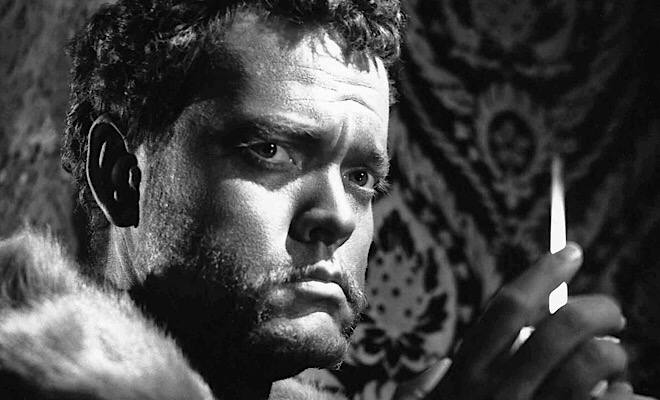
Vital Disc Stats: The Blu-ray
The 1952 and 1955 versions of Othello arrive on Blu-ray packaged in a standard Criterion case. Two Blu-ray discs - one containing both the European (1952) and American/British (1955) editions of the film (as well as the audio commentary, which accompanies the 1955 version), the other housing all the supplemental material - reside inside, along with a 10-page fold-out booklet featuring an essay by author Geoffrey O'Brien, cast and crew listings, and transfer notes. Once the discs are inserted into the player, the static menus with music immediately pop up; no previews or promos precede them.
Video Review
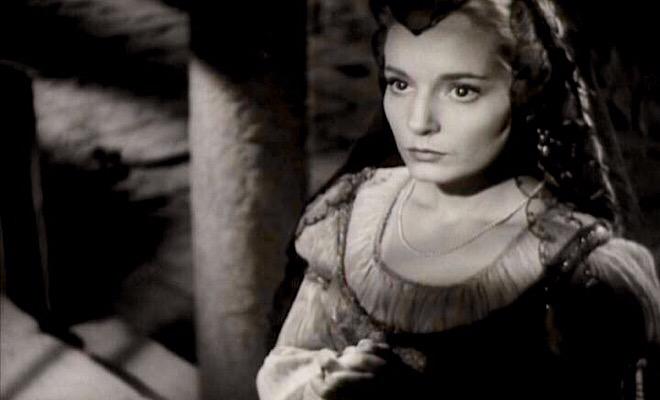
Othello pummels its viewers with a barrage of breathtaking images, and Criterion’s magnificent 1080p/AVC MPEG-4 transfers of both the 1952 European version and 1955 American/British version maximize the impact and beauty of every shot. According to the liner notes, the "new digital transfer of the 1952 European version was created in 4K resolution...from a 35 mm fine-grain master positive" and the "new digital transfer of the 1955 U.S. and UK version was created in 4K resolution...from the 35 mm original camera negative." Because of its purer source, the 1955 version looks a hair better than its 1952 counterpart, but the differences are barely noticeable, so the following comments apply to both transfers.
Pitch-perfect clarity and contrast combine with just the right amount of grain to produce a well-balanced picture that exudes a lovely film-like feel. Dense, dark blacks make a bold statement, while bright whites add welcome splashes of vibrancy. Superior gray scale variance enhances details and depth and adds wonderful texture to the Venetian and Moroccan locations, while sharp close-ups showcase every crease and wrinkle on the expressive faces of the cast, as well as the unspoiled loveliness of Suzanne Cloutier. Excellent shadow delineation emphasizes the film’s noirish overtones, and though some fixed specks and marks on a few exterior shots lead one to believe the camera lens might have been dirty at times, no other imperfections mar the pristine source material. The innovative, artistic visuals are the true star of Othello, and these sumptuous transfers are the star of this exceptional Blu-ray release.
Audio Review
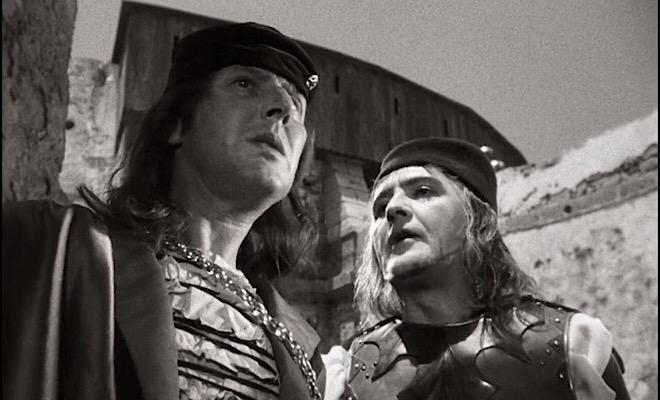
Sadly, audio is not the film’s strong suit (Welles reportedly cared far more about the visuals and performances than sound), but the LPCM mono tracks, which, according to the liner notes, were “remastered from composite fine-grain prints,” do their best with the inferior hand they’ve been dealt. Both replicate the original audio quite well and present it to its best advantage. Though the poorly synced and often overdubbed dialogue is often difficult to comprehend, good fidelity and tonal depth enhance the music and effects. Wide dynamic scales handle all the highs and lows of the period-appropriate score without a hint of distortion, and sonic accents like crashing waves and thrusting swords are crisp and distinct. Any age-related hiss, pops, and crackles have been meticulously erased, and no other imperfections mar the tracks. Welles may not have cared much about audio, but Criterion certainly does, and because of its efforts, Othello has never sounded better.
Special Features
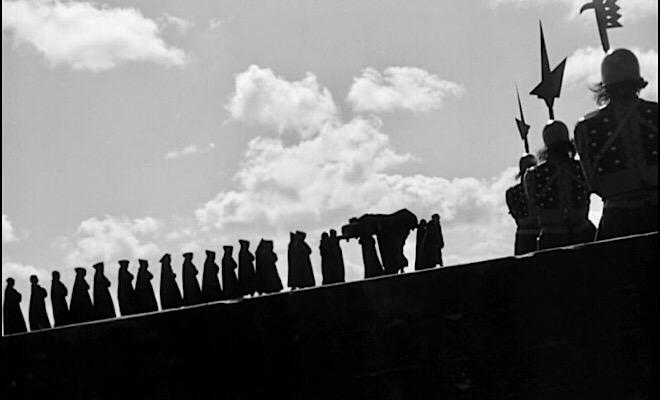
As always, Criterion supplies a cornucopia of extras that take us deep into the film and its production. Aside from the commentary track, all of the supplements reside on the second disc.
Audio Commentary - Recorded in 1994 for the Criterion laserdisc edition of Othello, this absorbing, informative track, which accompanies the 1955 "original American release version as approved and prepared by Welles himself," features remarks by director Peter Bogdanovich, who recalls his personal interactions with Welles, and Welles scholar Myron Meisel, whose insightful, scene-specific observations dominate the commentary. Bogdanovich calls Welles' Othello "the most cinematic Shakespeare adaptation" and "very accessible." He also notes the film is the "truest to the spirit, if not the letter, of Shakespeare" in motion picture history. (Take that, Laurence Olivier!) Both men analyze Othello from various angles and talk about the troubled production. Topics include the slight differences between the two versions, deletions from the play, the sound and sync issues Welles faced and how he dealt with them, Welles' filming style and larger than life portrayal, his "irreverent yet traditional" approach to the material, the similarities between Othello and Welles, and the jealousy Micheál MacLiammóir felt toward Welles and how it influenced his portrayal of Iago. This is a fantastic, enlightening commentary that sadly is only as long as this "speeded up, locomotive version of Othello." Make sure you check it out.
Documentary: Filming Othello (HD, 83 minutes) - The last completed feature film directed by Orson Welles examines one of his greatest achievements, and though it's not nearly as interesting as his narrative works, it remains an absorbing, often fascinating experience. Filming Othello allows Welles the opportunity to ruminate on the troubled production 25 years after its completion, and he does so with surprising candor, humor, insight, and introspection. Welles is a magnetic, larger-than-life personality with a booming, commanding voice, both of which lend a sense of gravitas to every statement he makes. Yes, he rambles a bit, veers off on tangents, and can't resist the urge to perform one of Othello's soliloquies, but his points are well constructed and often incisive. Among other things, he discusses the various visual motifs he employed and what they symbolize, his seat-of-the-pants style of filmmaking, the financial difficulties the movie faced, and how his cinematic language reflects that of the play. Breaking up his recollections and analysis are excerpts from a Q&A in which he participated following a screening of Othello, and a spirited conversation with fellow actors Micheál MacLiammóir and Hilton Edwards that covers such diverse topics as evil, jealousy, envy, and the nature of man. Welles is usually a highly creative director, but you'd never know it from this static, straightforward film that's big on content but small on style. It's rare for a director to so extensively reflect on a single work, which is one reason why Filming Othello is worthy of our attention, and its inclusion here is a boon for all of us who appreciate Welles' work.
Vintage Short Film: Return to Glennascaul (HD, 28 minutes) - During one of Othello's myriad production breaks, actor Hilton Edwards wrote and directed this charming short film that features both an appearance by Welles (who plays himself) and his narration. "A short story straight from the haunted land of Ireland," Return to Glennascaul (which means "glen of the shadows") tells the supernatural tale of a stranded motorist (Michael Laurence) who is offered a lift by a benevolent Welles, who is on his way back to Dublin after meeting Hilton Edwards to discuss some "Othello business." The motorist then recounts to Welles a "strange experience" he had after he picked up two women at the same location and drove them home. Beautifully photographed and wonderfully atmospheric, this simple yet elegant ghost story earned a 1953 Academy Award nomination for Best Two-Reel Short Subject, and is well worth seeing. Director Peter Bogdanovich supplies an informative introduction that was filmed in 1992.
Documentary: Souvenirs d'Othello (HD, 49 minutes) - "I think no film ever had as many difficulties as Othello," says actress Suzanne Cloutier, and over the course of this intimate, engrossing 1994 profile, she outlines many of them. From her first meeting with Welles to how she got the part of Desdemona to hints of a romance between them, Cloutier speaks with honesty and reverence about Welles and Othello, which she calls "the high point" of her life. Divided into two parts (one in French, the other in English), the documentary examines the production of Othello and Cloutier's relationship with Welles after its completion. In the first half, Cloutier talks about the financial difficulties that plagued the film, its scattered shooting schedule ("we'd start a scene in one place and finish it in another country, or even another continent"), her interpretation of Desdemona, her disappointment when she learned the entire play would not be filmed, and Welles' fascination with evil. During the second half, she shares some details about her "private, strange, and disturbing" experiences with Welles, praises his "resilient spirit" and "tremendous courage," and rues the physical, emotional, and financial toll Othello took on him. Though not very interesting visually, this documentary provides many valuable personal insights and reflections.
Interview with Simon Callow (HD, 22 minutes) - Most of us know Simon Callow as a prolific actor, but he also wrote an exhaustive three volume biography of Welles (the fourth and final installment has yet to be released), so he's well qualified to speak about Othello. In this captivating interview that's enhanced by rare photos and excerpts from archival correspondence, Callow talks about Welles' spontaneous directorial style (he sought to "use the moment"), the film's financial difficulties, the on-again-off-again nature of the production, and Welles' long, turbulent relationship with co-star Micheál MacLiammóir. He also analyzes the various performances and provides an intimate insight into Welles' personality.
Interview with Ayanna Thompson (HD, 21 minutes) - Scholar and author Ayanna Thompson addresses the question of race in Othello as it pertains to both the play and film in this absorbing examination. According to Thompson, race incites the tragedy in Shakespeare's drama, but Welles edited out most of the racial references and glosses over Othello's racial insecurity to focus on jealousy instead. Throughout the interview, Thompson discusses the racial history of Othello, the complex racial politics of Welles, and how some of the changes Welles implemented alter the tone and meaning of the piece.
Featurette: "Perspectives on Othello: Joseph McBride on Orson Welles" (HD, 33 minutes) - In this lively 2014 interview, Welles biographer Joseph McBride talks about Welles' stature as a "maverick director," his admiration of Shakespeare, the homoeroticism that pervades Welles' work, and how his previous screen adaptation of Macbeth differs from Othello. McBride recounts some of his personal conversations with Welles and reveals some personal details about him, most notably how he didn't like to act in his own films but felt it was expected, how he abandoned Hollywood for Europe to escape the Communist blacklist, and his insecurity about playing a black man. He also criticizes Welles' portrayal of Othello, and addresses the film's sync issues, undecipherable dialogue, "creative geography," continuity problems, and sexual themes. Plenty of photos and film clips augment this intelligent discussion, which sheds a good deal of light on a complex, fascinating, and often misunderstood figure.
Interview with François Thomas (HD, 18 minutes) - Welles scholar François Thomas compares and contrasts the two versions of Othello, which differ more from an audio standpoint than a narrative or visual one. It reportedly took Welles two years to edit Othello, and he used editing as a tool to cleverly mask the movie's sync issues. Thomas analyzes the concessions and improvements that distinguish both versions, and the subtleties that make them unique. He closes with a significant and very true statement: "To grasp what Orson Welles' Othello is, you absolutely have to see both versions."
Final Thoughts
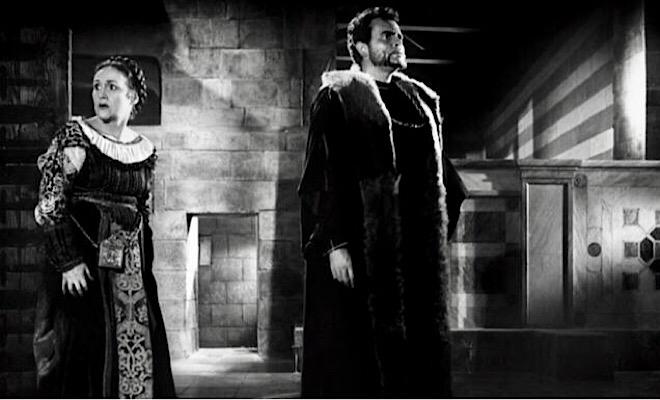
From a visual standpoint, Orson Welles' Othello is a masterpiece. Packed with striking, inventive imagery, this abbreviated adaptation of one of William Shakespeare's most famous tragedies dazzles the eyes from beginning to end. The audio may be problematic and some Shakespeare scholars may bemoan Welles' decision to severely truncate the play, but the artistry that fills almost every frame of this fascinating production is both undeniable and thrilling. Criterion properly honors Welles' work with an impressive two-disc set featuring terrific transfers of the 1952 and 1955 versions of the film, as well as four-plus hours of absorbing and informative extras. Not a Shakespeare fan? Don't let that deter you. Just watch and be transfixed. Must Own.
